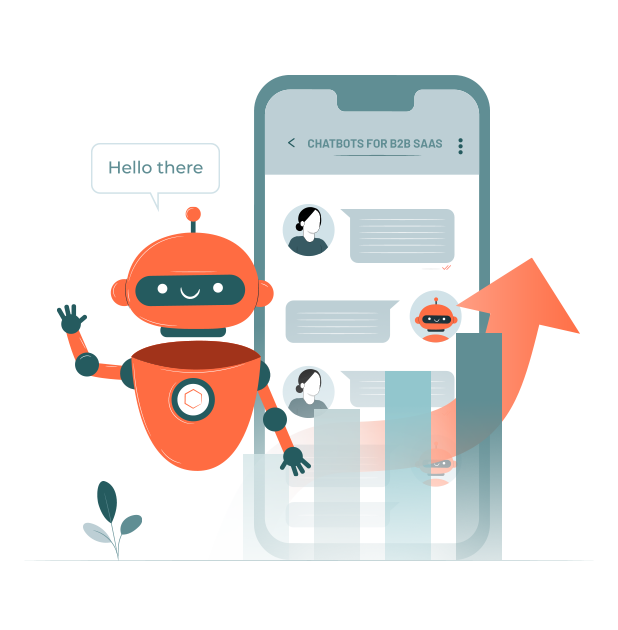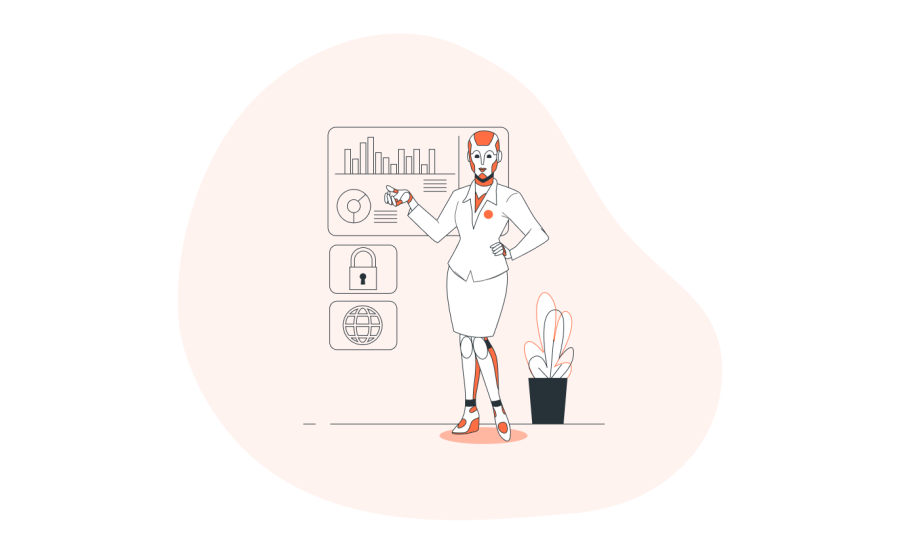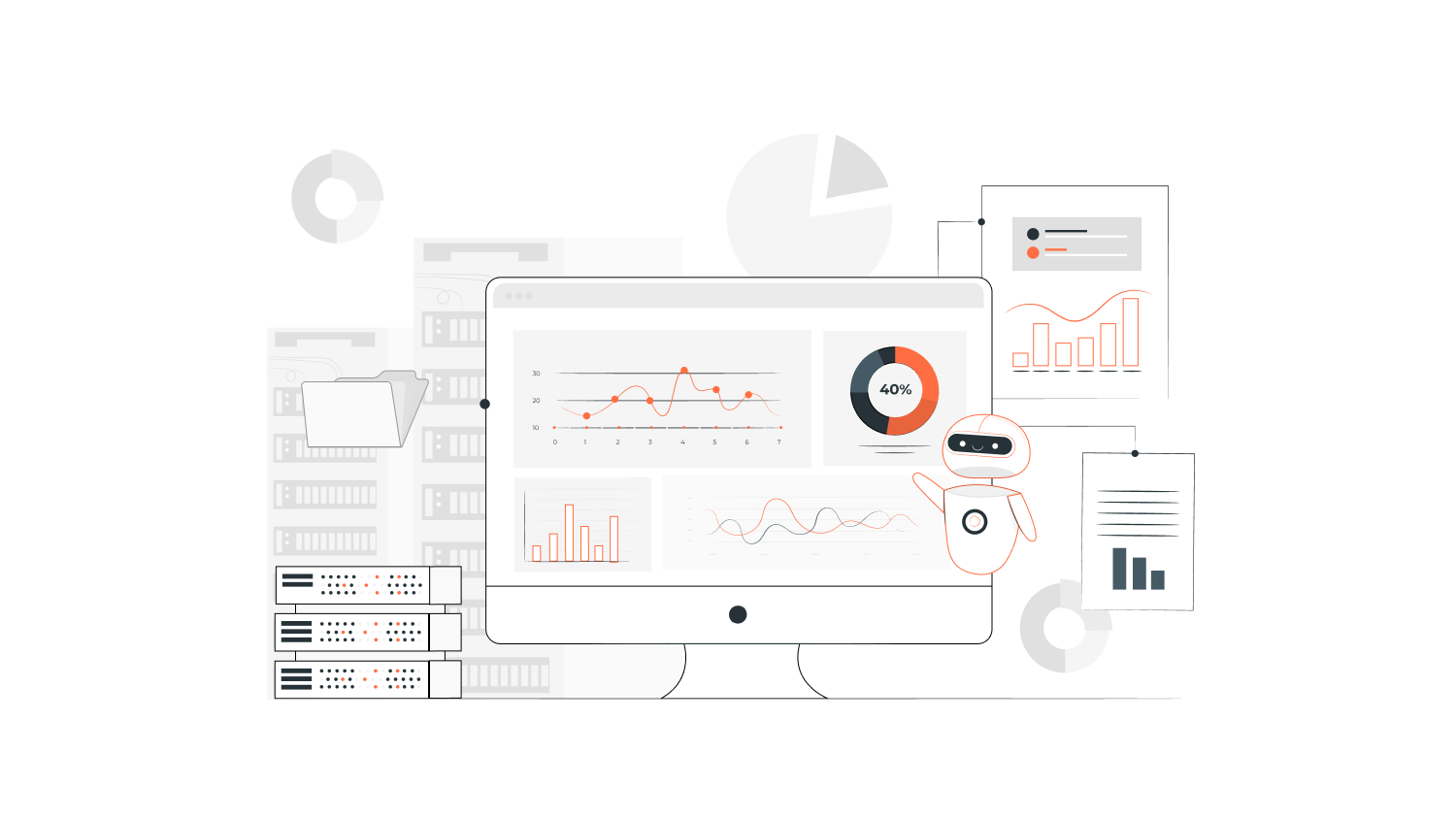Software has become crucial in our everyday lives. Through the software as a service (SaaS) model, users pay a periodic fee to access their licensed software from a central server. With SaaS, there’s no need to install anything on individual computers; everything is accessible directly via a web browser
The market for SaaS services is expanding quickly. Nowadays, the marketplace is flooded with brand-new offerings, making competition fierce. Zoom for company-wide meetings and webinars, MailChimp for sending and analyzing attractive email campaigns, and DocuSign for digitally signing legal documents are just a few examples of the cloud-based software programs increasingly being used by businesses around the world (DocuSign).
Businesses need to improve customer service and embrace new technologies to meet customers’ expectations. Modern consumers expect immediate responses. Automated communication solutions save time for your customer service staff. A chatbot is an example of a conversational system.
Having chatbots available through your website and other messaging apps like Facebook Messenger and WhatsApp is a smart strategy to deliver top-notch customer service. Let’s explore some additional benefits of incorporating a chatbot into your SaaS company.
Dig deeper: How to Optimise Your Team for Business Growth
What is an AI chatbot?
The most advanced AI technologies power the most stunning chatbots. AI chatbots are getting more realistic in their ability to mimic human interaction with the help of characteristics like natural speech and gradual development. AI-powered chatbots use natural language processing and harness semantics to comprehend what a person is saying. In contrast, simpler chatbot technology advances the conversation by using bot-prompted words or UX elements like Facebook Messenger’s recommended answers.
How SaaS Companies Can Leverage AI to Conquer New Heights
Many SaaS providers’ ultimate objective is ensuring their customers succeed in today’s digital-first environment without sacrificing productivity. How can these companies simultaneously increase their income, the number of satisfied customers, and the number of people utilizing their SaaS products?
Expected demand for SaaS solutions means that any assistance artificial intelligence can provide will be much appreciated. Successful businesses in this dynamic market will be those who successfully incorporate AI into their technological stack. This will allow them to expand their operations with minimal disruption to their clientele, freeing up resources to invest in building long-term partnerships.
Benefits of chatbot
Cater to the high engagement demand
The SaaS industry is constantly bombarded with consumer demands for assistance. Your current and future clientele rely on you to be available all day and night, no matter their questions. That’s a high need for a SaaS to fulfill.
Chatbots facilitate targeted marketing
Unfortunately, most discussions of SaaS in the business world are overly promotional and general. Account-based marketing offers a higher level of customization and relevance. Therefore this approach needs to be revised. Marketing to specific accounts is the primary focus of account-based marketing, often known as focused marketing. The bot will warmly greet customers and provide useful blogs based on their research to encourage them to purchase.
To provide a smooth transition, the bot will give those familiar with the product more details, guidance, and connections to pertinent literature. An effective AMB strategy for SaaS provides the client with helpful information at each stage of the buying process. If you’re trying to broaden your horizons and try something new, a chatbot built on ABM principles is a fantastic choice.
Speedy and cheaper customer service
Using chatbots, your company may provide immediate, round-the-clock responses to consumer inquiries. If it says “3-4 business days for a response,” don’t take it seriously; it means nothing. More importantly, this strategy is unsuccessful in the SaaS business, where immediate help is needed, or consumers would go elsewhere.
Lead qualification
A software as a service (SaaS) company’s success depends on its capacity to rapidly and easily acquire new customers, cultivate current ones, and convert them into paying members with as little human interaction as possible, in addition to the quality of its customer care. If you nurture the relationship once it enters your sales funnel, you will likely retain that lead. You lost a potential client because this lead needed to know what to do next.
Economical scalability
Providing Scalable, Cost-Effective Customer Service Unlike machine holidays, human beings celebrate Thanksgiving and Christmas. Increases in help desk tickets are standard throughout the busy Christmas season. Current staffing levels need to be improved to meet the rising demand for assistance. Chatbots’ usefulness lies in their ability to assist in situations like these. It’s costly and time-consuming to have a human response to customer service inquiries.
As needed, you may supplement your personnel with virtual helpers like chatbots. Chatbots’ ability to juggle many conversations at once means that businesses can meet rising demand without sacrificing the quality of care they provide to their existing clients.
Efficient human resource allocation
Simple and regular client questions are no match for artificially intelligent chatbots. When routine inquiries regarding the status of an order or requests for online contact forms are removed from agents’ to-do lists, they have more time to devote to more complex issues.
Problems in Tiers I and II are too complex for computers to solve, but human agents can. Staff turnover has been reduced as a result of this. Giving employees work that is both hard and personally fulfilling may boost engagement and retention.
Business branding and competitive edge
Pushing your SaaS company with chatbots might be fruitful. When landing on your page, your website visitors may get questions answered by the bot. Similar to hiring a CEO, only this is available 24/7. It’s great news for your reputation.
Chatbots as a service (SaaS) is another cutting-edge concept. You might acquire an advantage over other businesses by including them on your website. By demonstrating to be a pioneer in your field, you may separate yourself from the competition and cement your reputation as a leader.
Learn more: 5 Key Benefits of Artificial Intelligence for Business [With Examples]
Best AI chatbot for customer service
1. Netomi
Netomi is an AI platform that streamlines the process of handling customer care requests made by email, chat, text, or voice. Thanks to any customer care chatbot’s most sophisticated Natural Language Understanding (NLU) engine, it has unrivaled accuracy.
As a result of its emphasis on AI-driven customer care, it may be possible to respond to over 70% of consumer inquiries automatically. Getting Netomi up and running is simply because it is already compatible with the most popular agent desk software. The firm has formed strategic alliances with other companies, including WestJet, Brex, Zinus, Singtel, Circles Life, WB Games, and HP, to offer the best possible variety of products and services.
2. ChatGPT
One of OpenAI’s primary objectives is to develop easy AI for anybody to implement and utilize. One of the most well-known examples of such AI is ChatGPT, which is not a chatbot despite its name. ChatGPT is a model for processing natural language and will hereafter be referred to as an NLP model.
ChatGPT’s robust foundation in the GPT-3 language model enables it to respond to questions across a wide range of domains consistently and reliably. Its text answers have been taught to sound and seem genuine. These features make it a powerful resource for many applications in natural language processing, including text translation, summarization, and the development of conversational dialogue. Thus, despite its usefulness, ChatGPT is better renowned for being the funniest chatbot.
3. atSpoke
The atSpoke platform facilitates more effective internal communication and data dissemination. The AI provides contextual answers to inquiries from staff members by mining a database of facts. By automatically responding to 40 percent of queries, internal teams get 5x quicker resolutions. Slack, Google Drive, Confluence, and Microsoft Teams are real-time data sources.
4. WP-chatbot
Live chat and Web chat are available to visitors of tens of thousands of websites thanks to WP-Chatbot, the most popular chatbot for the WordPress platform. WP-Chatbot is a plugin for the WordPress content management system that connects a company’s Facebook page to Facebook Messenger for live and prerecorded conversations.
This plugin makes it easy to add real-time chat to a WordPress site. Getting everything set up requires minimal effort. A corporation may manage all client conversations from various channels, including Facebook Messenger and online chat, in a single inbox.
5. Microsoft bot framework
The Microsoft Bot Framework provides programmers with a comprehensive collection of resources for creating AI-powered conversational user interfaces.
Developers and cross-functional teams may use the Bot Framework Composer’s visual writing canvas to coordinate the creation of everyday experiences that incorporate Language Understanding, a Question and Answer generator, and pre-programmed responses.
The Microsoft Bot Framework Software Development Kit (SDK) and associated tools are available to the public, allowing developers to quickly and easily integrate a bot with various platforms.
6. Alexa for business
There are currently 83.1 million active intelligent speaker users. To date, Amazon has amassed a 70% market share in the artificial intelligence (AI) chatbot software for voice assistants. IT departments might now consider developing Alexa for Business skills to expedite responses to inquiries from customers. Amazon’s bespoke talents have risen from 130 to over 100,000.
Creating an Alexa skill provides customers with a voice-activated interface for asking questions, making purchases, and interacting with your brand’s content. Alexa for Business may be incorporated with your organization’s preexisting systems like Salesforce and ServiceNow, as well as newer, specialized solutions.
Revenue growth with a chatbot
1. Word of mouth
To boost their bottom lines, businesses emphasize customer satisfaction above all else. The quality of their client relationships is a differentiating factor among market leaders. Having a positive client experience increases the likelihood that they will recommend your business to others.
Nielsen found that 92 percent of respondents trust recommendations from friends and family above commercials. Several recent studies suggest that chatbots may be essential in encouraging client loyalty in today’s social media landscape.
2. Generating leads and boosting conversions
Using a chatbot to promote a product is a simple process. Pre-chat forms are common in chatbots and may gather relevant information before the discussion begins. Analyzing information gleaned from chatbots and messaging applications like Facebook Messenger and WhatsApp can help you swiftly convert leads into paying clients.
If you go out of your way to help a customer, they will be more likely to support what you’re selling. Sales and support teams may succeed in breaking into new markets if they gather and analyze customer data, such as product preferences, reviews, and contact information (phone numbers, city, state, and zip code).
3. Upselling to your existing customers
These days, upselling and cross-selling are expected parts of any successful sales process. Gaining a new clientele is only sometimes the best approach to increase revenue. They also stem from already connections with target customers.
Salespeople have a better probability of closing a deal if they can persuade customers to spend more money on a higher-priced item. This enhances the shopping trip for the customer and leads to more sales. For instance, if your guest is looking to buy new sneakers, they should check out the latest collection of cozy socks.
Read more: 9 Proven Ways AI and ML Can Improve Customer Experience
Conclusion
In conclusion, chatbots are a powerful tool for B2B SaaS companies looking to grow their business and improve customer experiences. By harnessing the full potential of chatbots, B2B SaaS companies can streamline processes, increase efficiency, and drive growth.
With the help of NeoITO, companies can leverage the power of AI and automate tasks, provide 24/7 support, and collect valuable customer data. NeoITO is committed to helping businesses reach their full potential by providing expert support and customized solutions for their unique needs.
FAQs
How can chatbots benefit B2B SaaS businesses?
Chatbots automate support, improve response times, enhance user experience, generate leads, and provide data for insights.
What AI technologies are commonly used in chatbots for B2B SaaS?
NLP, machine learning, and sentiment analysis are commonly used AI technologies.
How can chatbots enhance lead generation and customer engagement in B2B SaaS?
Chatbots qualify leads, offer personalized recommendations, provide instant support, collect feedback, and nurture prospects.
What considerations should B2B SaaS businesses keep in mind when implementing chatbots?
Define objectives, design user-friendly flows, integrate with systems, monitor and optimize performance, and ensure smooth human agent transition.




